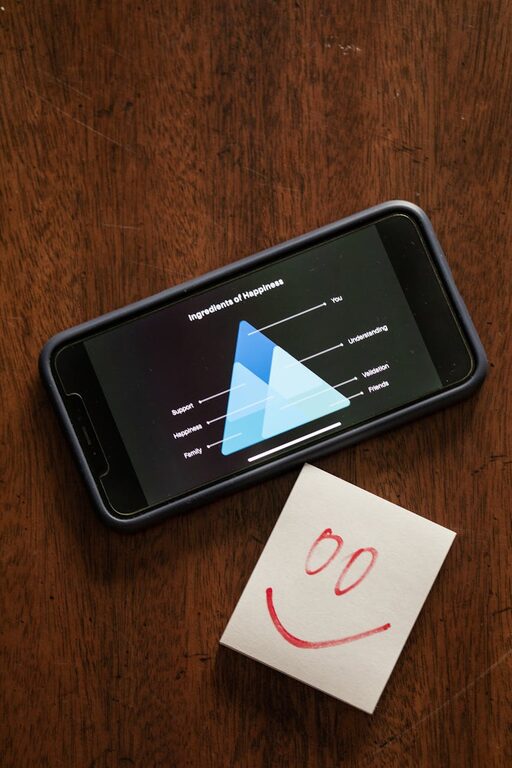How to Maintain Healthy Phone Habits for a Balanced Lifestyle

In today’s digital world, smartphones have become an essential part of our daily lives. While these devices keep us connected and informed, excessive phone use can lead to distractions, eye strain, and even stress. Maintaining healthy phone habits is key to striking a good balance between staying connected and taking care of your mental and physical well-being. In this blog post, we’ll explore practical strategies to help you develop healthier phone routines.
Why Healthy Phone Habits Matter
Spending too much time on your phone can affect your health and productivity. Constant notifications, social media scrolling, and screen time can disrupt focus, impact sleep, and increase anxiety. By cultivating mindful phone use, you can improve your concentration, reduce digital fatigue, and foster better relationships with those around you.
1. Set Specific Phone Usage Goals
Establish clear goals for when and how long you will use your phone. For example:
– Limit social media use to 30 minutes per day
– Check emails only during work hours
– Avoid phone use during meals or social gatherings
Setting these boundaries helps prevent mindless scrolling and encourages more intentional phone use.
2. Create Phone-Free Zones and Times
Designate certain areas and times where phone use is not allowed. This can include:
– Bedroom or sleeping areas
– Family mealtimes
– During workouts or outdoor activities
Phone-free zones help you be present in the moment and improve the quality of your interactions.
3. Use Built-In Features to Manage Screen Time
Modern smartphones often include tools to monitor and control your phone usage:
– Set daily screen time limits for specific apps
– Use Do Not Disturb mode during focused work sessions
– Schedule “wind-down” periods before bedtime
These features make it easier to stick to your goals and maintain balance.
4. Turn Off Non-Essential Notifications
Notifications can be a major distraction. To reduce interruptions:
– Disable notifications from non-critical apps
– Customize alerts to only notify you for important messages
– Use silent mode or vibration when you need to focus
Reducing noise from your phone helps you stay present and less stressed.
5. Practice Mindful Phone Use
Mindfulness means being fully aware of what you are doing at the moment. Apply this concept to your phone use:
– Pause before unlocking your phone: ask yourself why you want to use it
– Avoid multitasking with your phone and other activities
– Focus on one task at a time to reduce mental clutter
This practice helps you use your device intentionally rather than out of habit.
6. Take Regular Breaks from Screens
Frequent breaks improve eye health and mental clarity. Remember the 20-20-20 rule:
– Every 20 minutes, look at something 20 feet away for at least 20 seconds
Also, consider digital detoxes, such as a phone-free day or a weekend without social media.
7. Prioritize Real-Life Connections
To foster healthy relationships:
– Use your phone to arrange in-person meetups instead of replacing them
– Engage fully in conversations by putting your phone away
– Share phone-free activities like hiking, cooking, or reading together
This strengthens bonds and reduces feelings of isolation caused by excessive screen time.
8. Establish a Healthy Nighttime Routine
Exposure to phone screens before bed can interfere with sleep quality due to blue light. Try these tips:
– Avoid screens at least 30 minutes before bedtime
– Read a book or listen to calming music instead
– Use blue light filters if you must use your phone in the evening
Better sleep leads to improved mood and overall health.
9. Keep Your Phone Out of Reach When Not in Use
When working or relaxing, keep your phone in another room or at a designated spot. This reduces temptation and helps you stay focused on the task at hand.
10. Educate Yourself About Technology Addiction
Understanding the psychology behind phone addiction can motivate you to change habits. Recognize signs like:
– Checking your phone automatically without a purpose
– Feeling restless or anxious when separated from your device
– Neglecting responsibilities due to excessive phone use
Seeking support or setting limits can help break these patterns.
—
Conclusion
Maintaining healthy phone habits is an important step toward improving your well-being and productivity. By setting goals, creating phone-free times, turning off distractions, and practicing mindfulness, you can enjoy the benefits of technology without feeling overwhelmed. Remember, your phone should be a helpful tool, not a source of stress. Start small, be consistent, and watch how a balanced approach to phone use positively impacts your life.




